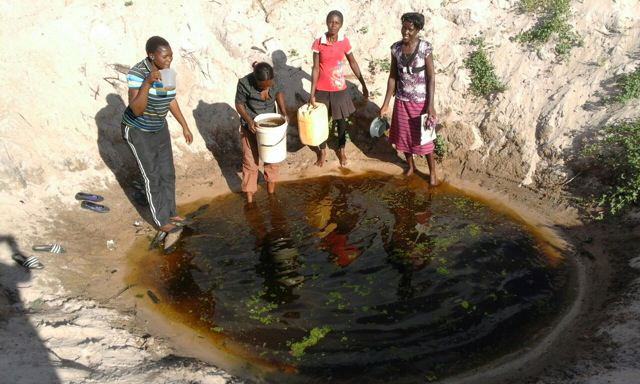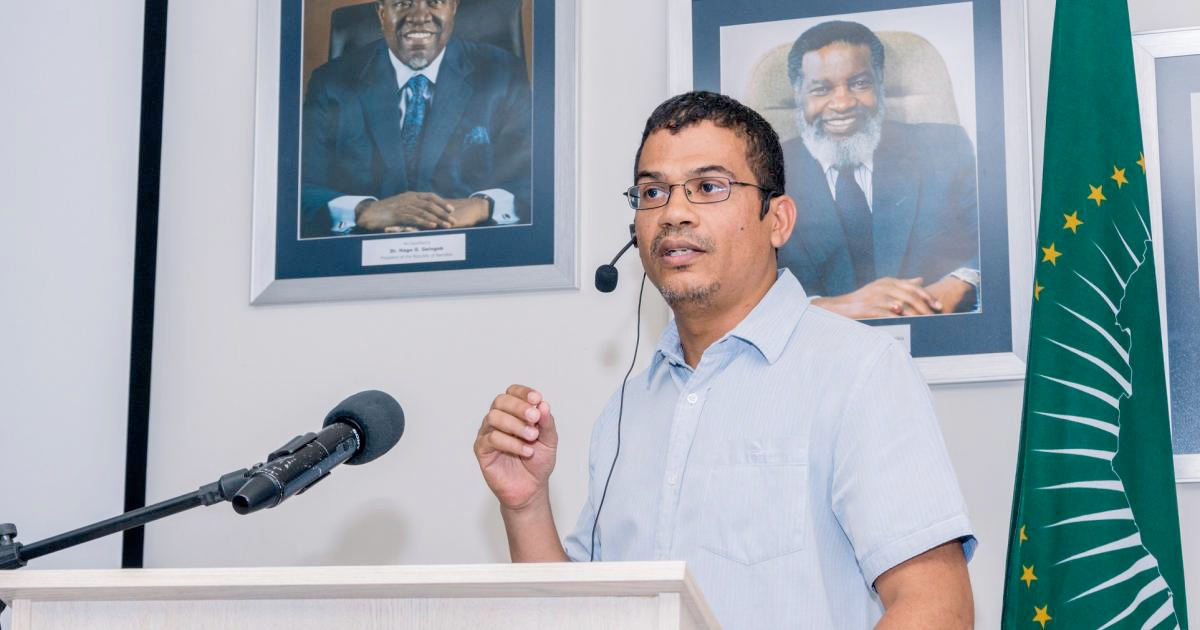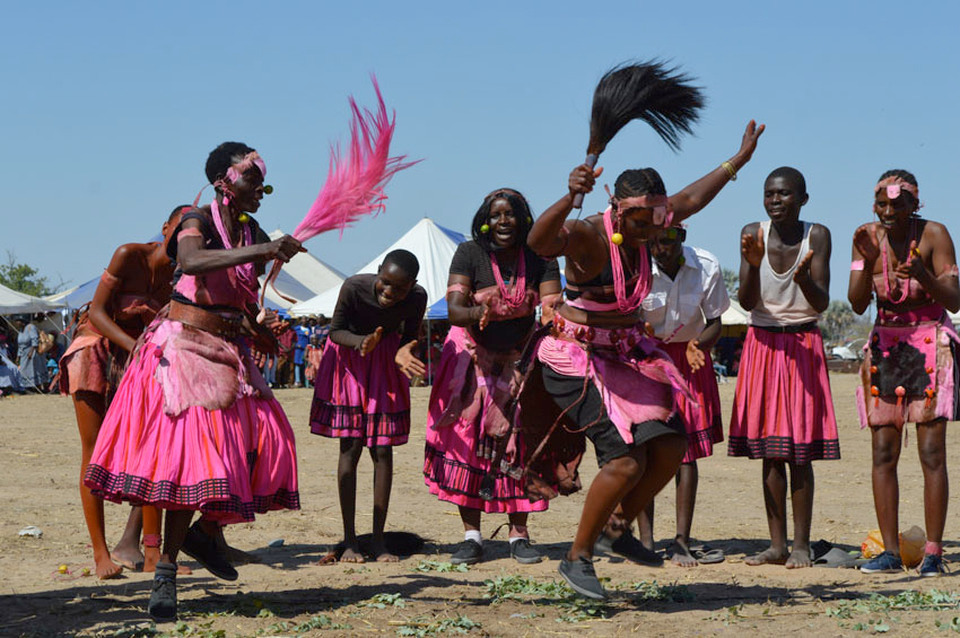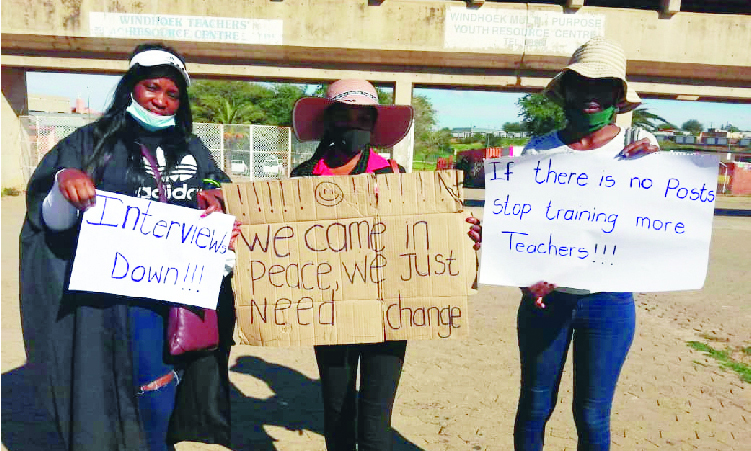• LEONIE JOUBERTIn near-desert southern Africa, access to water in rural areas is already precarious. Climate change will reduce overall rainfall, decreasing the quality and quantity of water resources. In Namibia, the government has rolled out a wide network of water infrastructure, bringing piped water to many remote villages.
They have handed over the management of the daily water distribution, and payments for that water to local village volunteers.
While the policy is hard to implement, the better this country handles the processes of decentralised water management now, the better it will be able to adapt to the impacts of climate change in future.
Every morning, Maria Petrus* (*name has been changed) needs to be at the communal water tap in her village at Onesi constituency in northern Namibia.
She will unlock the tap for about two hours while her fellow villagers come to collect their day’s water. Later that afternoon, Petrus will be back for another couple of hours, overseeing more water collection.
The 46-year-old woman is a member of the village’s water point committee (WPC), volunteers who manage the government’s water delivery to this rural community. She will keep a record of how much water individual households collect over the course of each month – there are about 70 households in her village – and, come month-end, the association’s secretary will collect payment for that month’s water purchases.
To do this job, Petrus and her fellow committee volunteers must be able to read and write, and they must be young enough, and in good enough health, to get to the site each day.
Volunteering comes with its own risks, too: it can keep volunteers from their crops or livestock, which are the bread-and-butter of this farming-dependent community.
They will also have to handle the challenges that arise if people arrive late for water collection, after walking long distances to get their daily allocation. Or they will have to deal with possible conflict when cash-strapped families – possibly their friends or neighbours – cannot service their debt.
Petrus’s story demonstrates the lived experience of a typical rural community in Namibia, where national government policy has passed the daily management of water distribution and payment on to local villagers as part of a move to boost water service delivery.
“This policy was part of Namibia’s attempt to improve water delivery through more inclusive governance since independence in 1990, and yet many communal water systems in the north have shut down because people cannot afford to pay for the state-supplied water,” explains Irene Kunamwene, a researcher working with the African Climate and Development Initiative (ACDI) at the University of Cape Town in South Africa.
“When that happens, villagers rely on hand-dug wells to draw free water during the dry season.”
This comes with significant risks: the water may not be safe to drink, or children may fall into the wells.
Namibia decentralised its water distribution and management to be more inclusive in its resource governance and management, according to ACDI researcher, associate professor Gina Ziervogel.
However, when Kunamwene and her team visited villages in Onesi between 2015 and 2017, to test whether this management approach was working, they found that many committee volunteers who were responsible for managing water distribution and payments did not have the skills, time, or capacity to do the job effectively.
“In semi-arid parts of southern Africa, like Namibia, water resources are already pressured,” explains Ziervogel, “and things will get tougher in future as the climate here becomes hotter, drier, and less predictable.”
Ziervogel and Kunamwene say the lesson for water managers across the region is that governments need to find appropriate and inclusive ways to manage a resource as scarce and susceptible to change as water. The better they manage water resources now, the better they will be able to adapt to the impacts of climate change in future.
After independence, the government began rolling out expanded water infrastructure, installing boreholes, communal taps, and shared animal water troughs in many remote villages. It then implemented the management system that gave the day-to-day administration of these water points to local communities.
When the ACDI researchers visited communities in Onesi, where employment is low and people rely on farming and social grants to pay for state-supplied water, they found that this management system had not necessarily improved water delivery.
In a village like Petrus’, the water point committee is made up of about seven members, who need a range of skills.
Volunteers must first consult the community on how to structure water payment: should everyone pay a flat rate for daily water access, regardless of how much each person uses? Or should they pay for what they take each day?
“In some communities, you might have a powerful, rich person lobbying the committee to pay a flat fee per person,” explains Ziervogel. “But this individual might have a large herd of cattle, and might want to take much more water each day than a poorer household with no livestock.”
Researchers found that this sort of situation showed the potential tensions in a community where people are already vying for a scarce resource, a situation which might become even more pressured in times of drought. When rainfall drops in semi-arid regions like southern Africa, groundwater is not recharged, causing water to become brackish, or taps might even run dry.
“Many communities have chosen to charge for the quantity of water people take from a communal tap over the course of a month. But this results in its own management challenges, such as when poorer families cannot pay at the end of each month for the full amount they have taken.”
The ACDI researchers, working with colleagues from the University of Namibia (Unam), describe the day-to-day management challenges at the communal water points. Volunteers need more than just numeracy skills to record and handle payments. They need stationery. They also need mediation and management skills to oversee who takes how much water, and negotiate situations where people cannot pay but still have a constitutional right to water.
When infrastructure breaks, volunteers often do not know who they should report this to, or do not have the skills or means to make repairs themselves, or government response will be slow.
“There is a great deal of political will among local communities to take responsibility for their own communal water point management, but there often isn’t the skill or capacity to do so,” says Ziervogel.
If countries in semi-arid climates around the world are to be more responsive to the challenges faced in the area of water management as climate shifts in future, they need to get a handle on these on-the-ground management issues today.
Stay informed with The Namibian – your source for credible journalism. Get in-depth reporting and opinions for
only N$85 a month. Invest in journalism, invest in democracy –
Subscribe Now!










